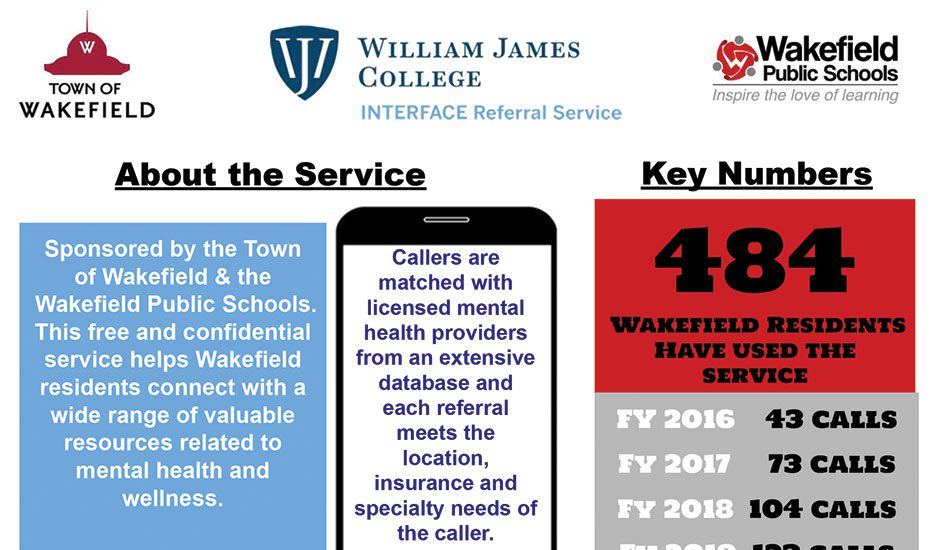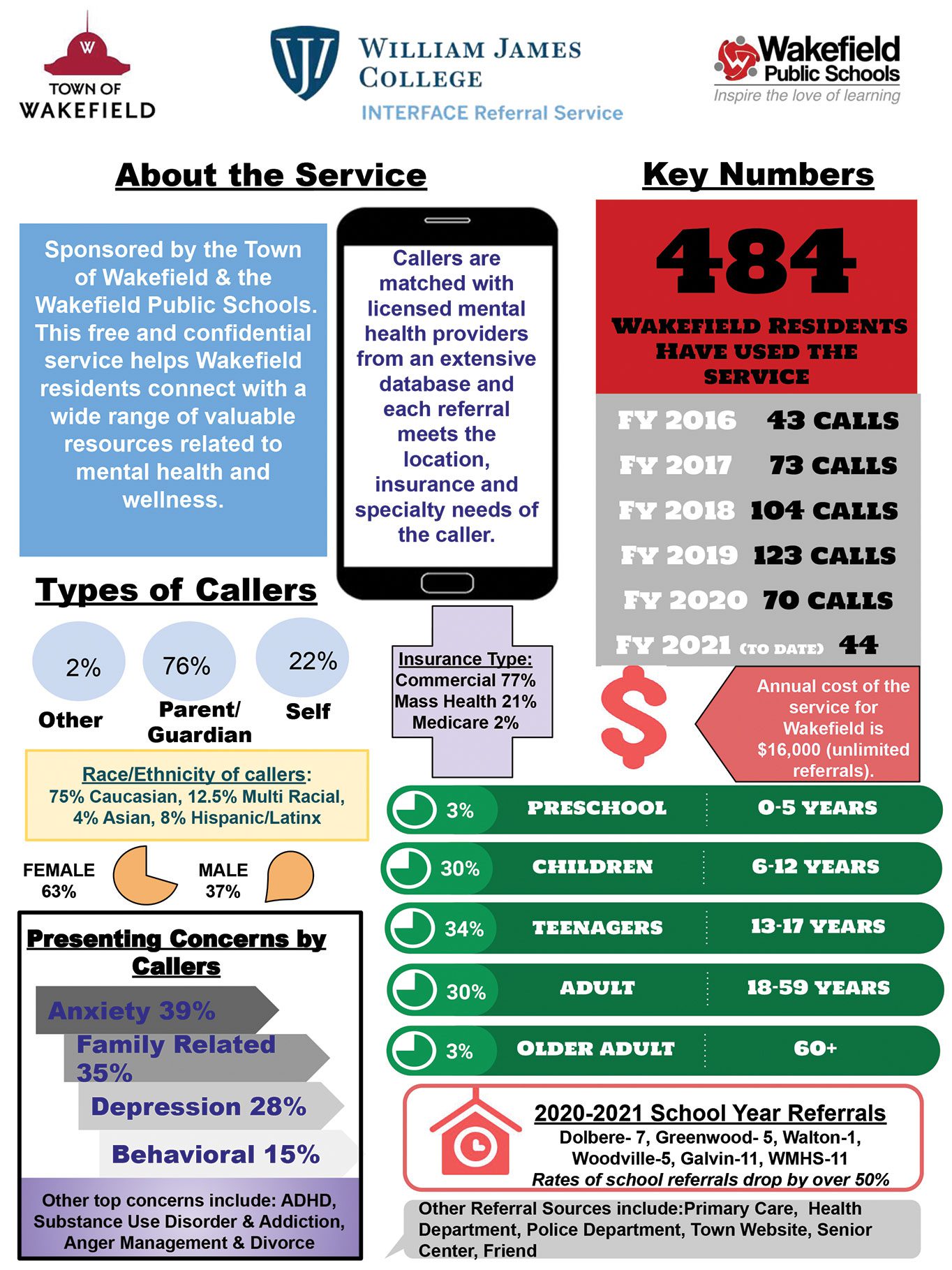WAKEFIELD — Residents are taking advantage of important mental health services offered by the town and experts believe usage will increase in the months ahead.
The Health Department just released a summary of some trends in a few of areas over the past 18 months, a period that included dealing with the COVID-19 pandemic and its necessary restrictions on interacting with others. Those trends are shown in the accompanying graphic.
Wakefield residents of all ages can use the free, confidential Interface referral service to get matched with licensed mental health and wellness providers. Each referral best meets the location, insurance and specialty needs of the caller. Interface can be reached at 1-888-244-6843 or https://interface.williamjames.edu.
In addition, the town partners with Eliot Community Services to provide residents in crisis with a 24/7 mobile emergency service. Eliot staff will travel for psychiatric evalution, crisis intervention, stabilization and follow up. Eliot can be reached at 1-800-988-1111 or www.eliotchs.org/emergency-services.
According to Catherine Dhingra, director of the Health Department’s Unified Prevention Coalition (known as Wake-Up), the town has seen similar trends as neighboring communities (Reading, Melrose) “with referral rates dropping in the pandemic based on changes to in-person schooling structure. Referral rates are on-track to increase back towards pre-pandemic levels this year.”
She continued, “Within the next month we hope to have a comprehensive usage report of all Wakefield Behavioral Health & Substance Use services including Eliot Emergency Services, Wakefield Police CIT/Eliot Clinician Support, Wakefield Recovery Coach Services, Respond Domestic Violence Support Services, and Interface.”
Following are some 2021 statistics put together by Mental Health America:
Youth mental health is worsening. 9.7% of youth in the U.S. have severe major depression, compared to 9.2% in last year’s dataset. This rate was highest among youth who identify as more than one race, at 12.4%.
Even before COVID-19, the prevalence of mental illness among adults was increasing. In 2017-2018, 19% of adults experienced a mental illness, an increase of 1.5 million people over last year’s dataset.
Suicidal ideation among adults is increasing. The percentage of adults in the U.S. who are experiencing serious thoughts of suicide increased 0.15% from 2016-2017 to 2017-2018 – an additional 460,000 people from last year’s dataset.
There is still unmet need for mental health treatment among youth and adults. 60% of youth with major depression did not receive any mental health treatment in 2017-2018. Even in states with the greatest access, over 38% are not receiving the mental health services they need. Among youth with severe depression, only 27.3% received consistent treatment. 23.6% of adults with a mental illness reported an unmet need for treatment in 2017-2018. This number has not declined since 2011.
The percentage of adults with a mental illness who are uninsured increased for the first time since the passage of the Affordable Care Act (ACA).Nationally, 10.8% are uninsured, totaling 5.1 million adults. This figure differs dramatically across states – in New Jersey (ranked #1) 2.5% of adults with AMI are uninsured, compared to 23% in Wyoming (ranked #51).






